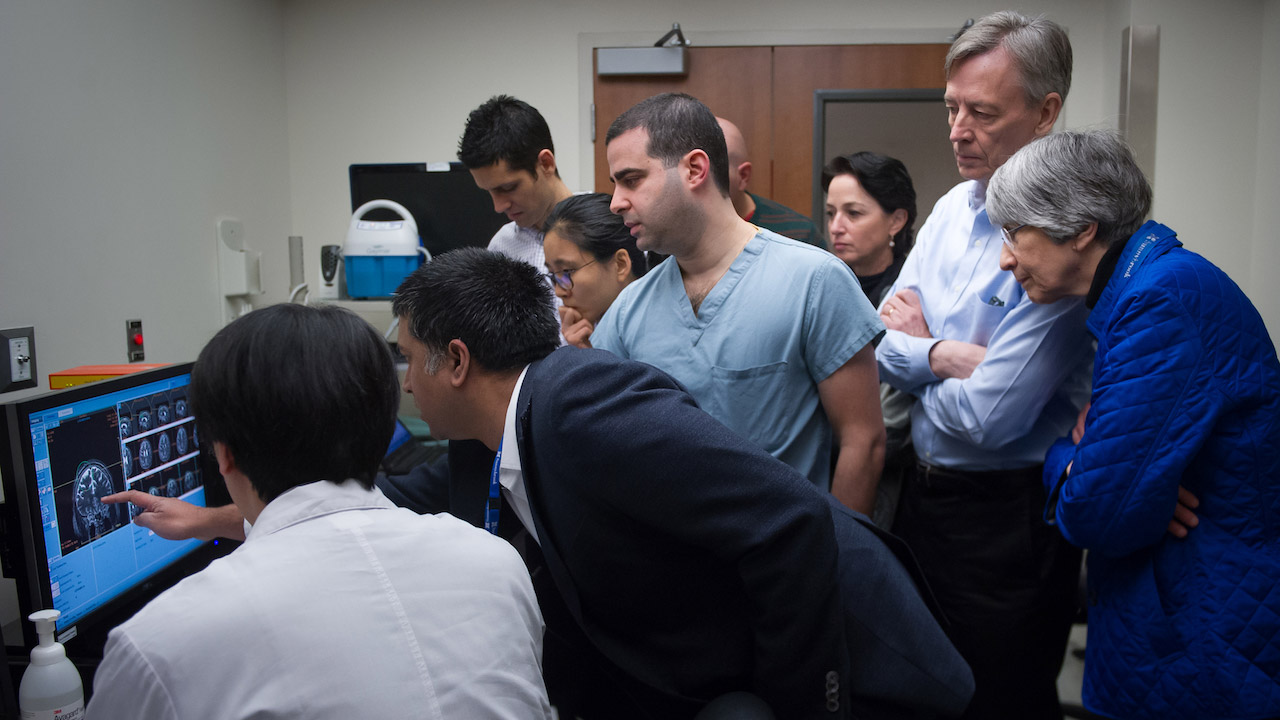Focused ultrasound: studying a new treatment paradigm for Alzheimer’s
A team of Sunnybrook Research Institute (SRI) scientists has launched the next phase of a trial looking at the use of focused ultrasound to open the blood-brain barrier in people with Alzheimer’s disease. The barrier protects the brain from toxins in the blood but also prevents therapies, like drugs, from entering the brain.
The study builds on the first phase of the trial, which was the first in the world to show that focused ultrasound can open the blood-brain barrier safely, temporarily and repeatedly in people with mild to moderate Alzheimer’s disease. This second phase, a larger study, seeks to confirm the safety and efficacy of the technique, and open the barrier in multiple areas. The technology works by using ultrasound-stimulated bubbles guided by MRI to jostle open the barrier noninvasively. Dr. Kullervo Hynynen, director of Physical Sciences at SRI, pioneered the technology.
The researchers, led by Drs. Sandra Black, Hynynen and Nir Lipsman, will look at the effect of creating several openings of the barrier in 30 patients. Each patient will have the procedure three times. The team, part of SRI’s Centre for Research in Image-Guided Therapeutics, will also test whether focused ultrasound alone—without drugs or antibodies—reduces buildup of toxic proteins like amyloid in the brain.
Sunnybrook is the sole Canadian site to be named a Centre of Excellence in Focused Ultrasound.
Read the full story at The Globe and Mail.



